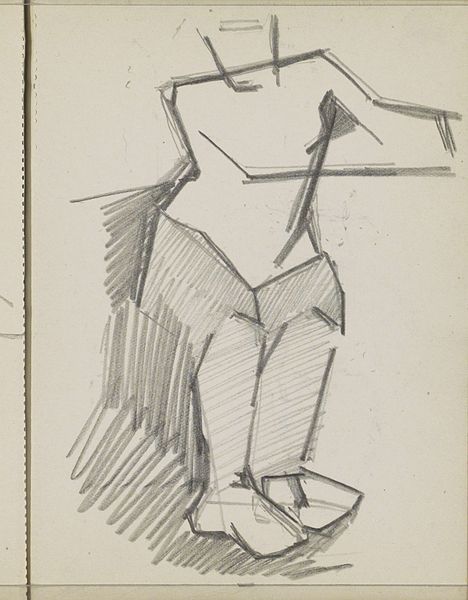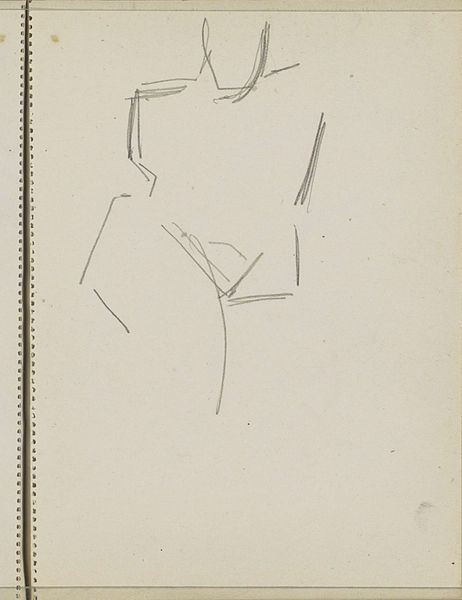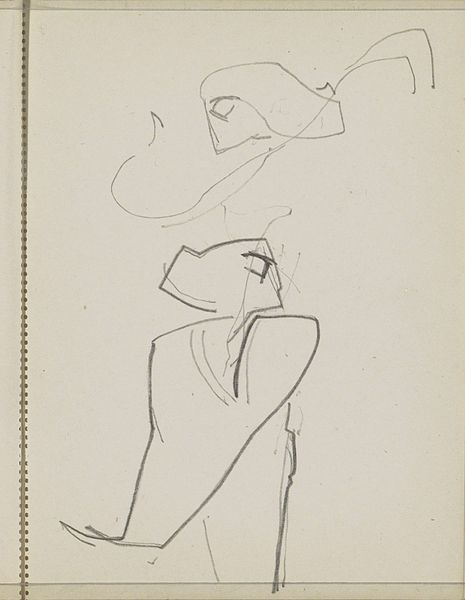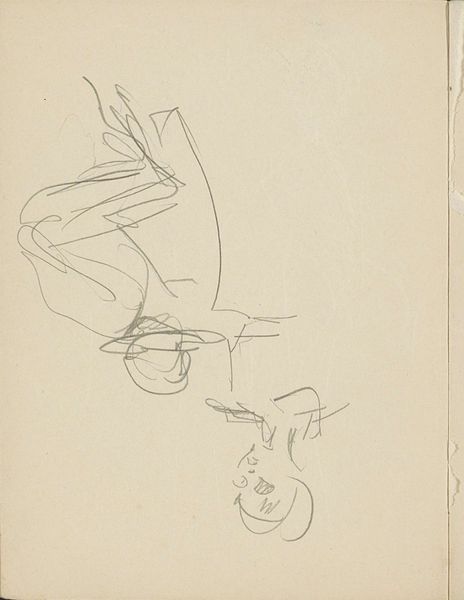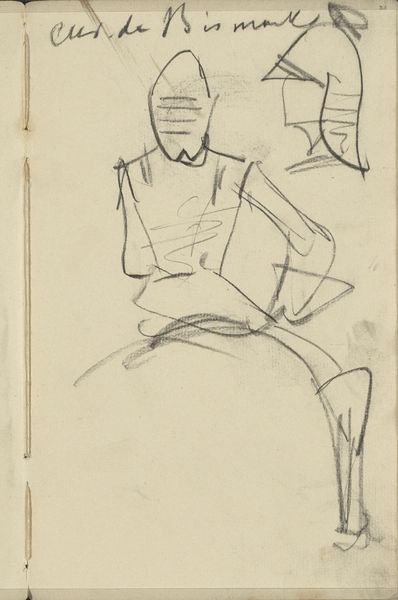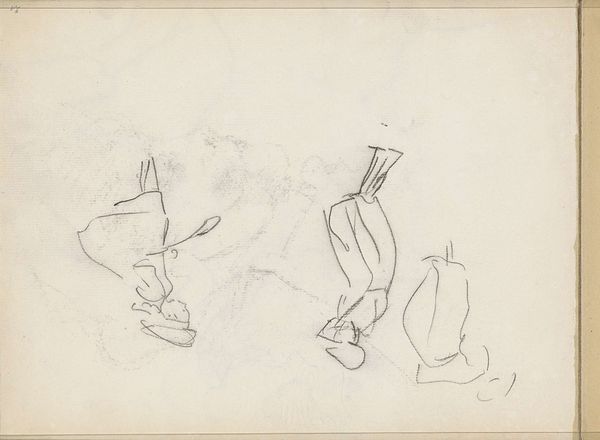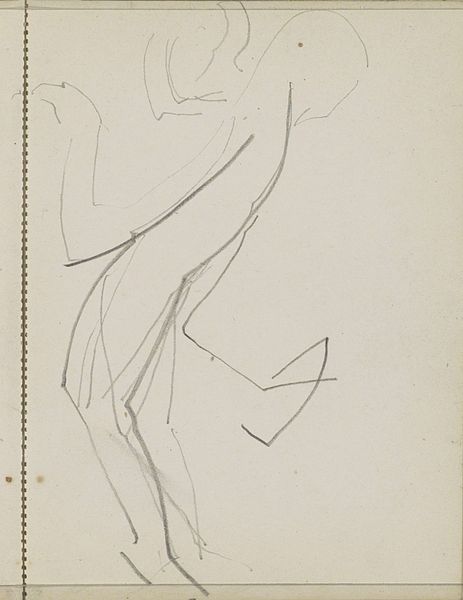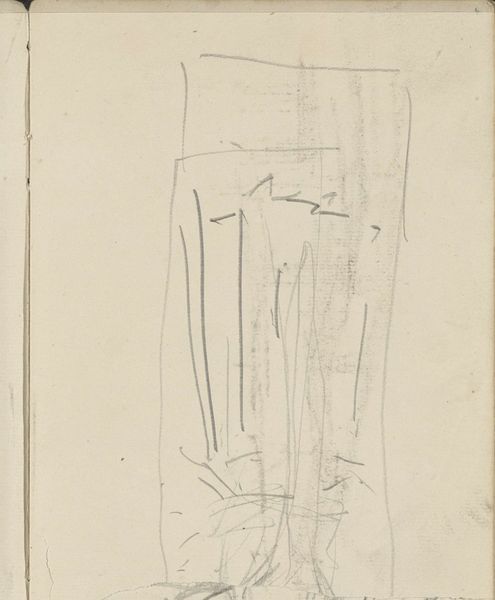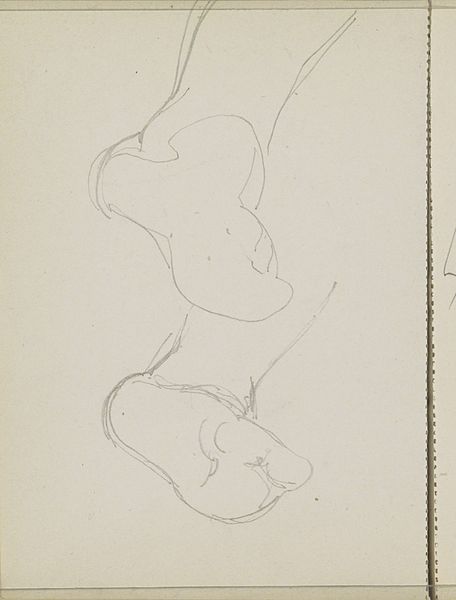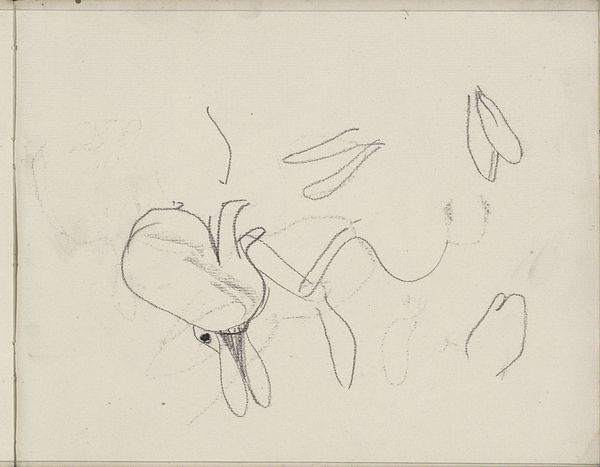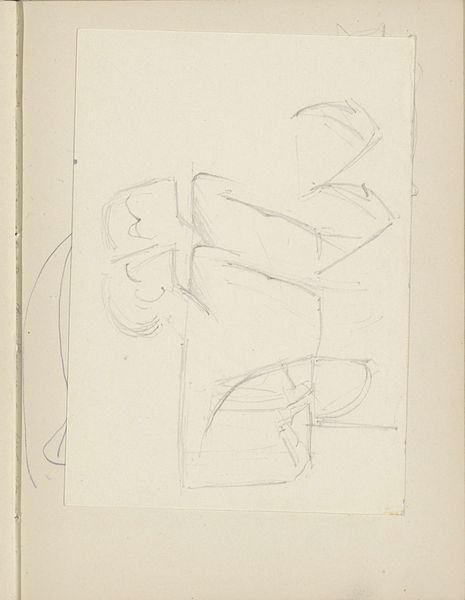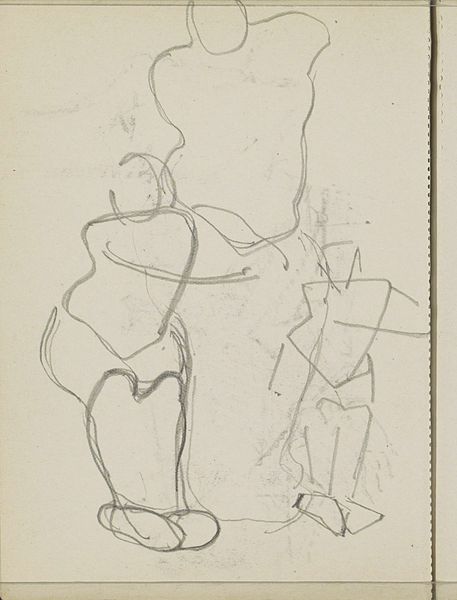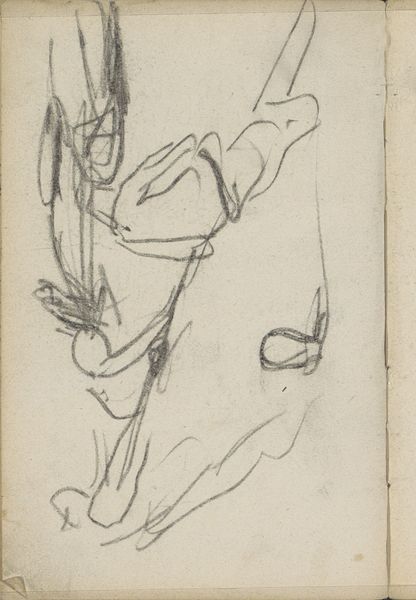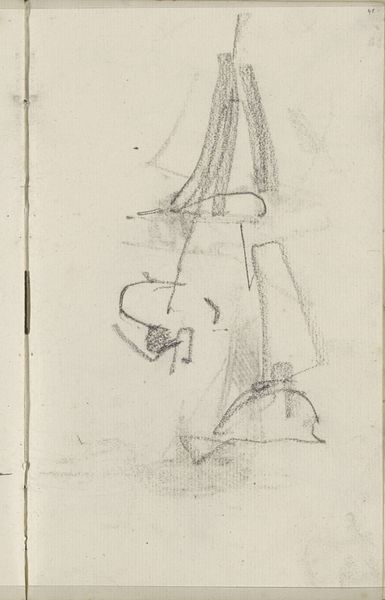
drawing, pencil
#
drawing
#
amateur sketch
#
light pencil work
#
pencil sketch
#
incomplete sketchy
#
hand drawn type
#
figuration
#
personal sketchbook
#
ink drawing experimentation
#
sketch
#
pen-ink sketch
#
pencil
#
sketchbook drawing
#
sketchbook art
#
modernism
Copyright: Rijks Museum: Open Domain
Curator: Welcome. We are looking at a work entitled "Figuur in een zithouding," or "Figure in a Seated Position," a pencil drawing from sometime between 1906 and 1945, currently held in the Rijksmuseum collection. Editor: My first thought? Vulnerable. There’s a nakedness to this figure, both literally and emotionally. The simplicity of the lines exposes something raw. Curator: Precisely. Note the medium itself: pencil, a readily available, relatively inexpensive material. This suggests a level of accessibility in the creation of the work. Perhaps it was made in a more casual setting, reflecting daily life? The sketch is not highly refined; instead, it points towards process and practice. Editor: You know, the rapid strokes suggest the artist was maybe trying to capture a fleeting moment, a posture that might vanish. Almost like they are trying to cage the fleeting nature of being. I feel it deep, you know? Like a memory fading as soon as you try to grasp it. Curator: Yes, and we see this economy of line quite often. Pencil lends itself well to these types of fluid and changeable forms, quick iterations. We must think about the context surrounding its production as well. There are signs that suggest that the author has experimented using the medium; perhaps there are signs to consider this as an "ink drawing experimentation" exercise. Editor: Maybe. The legs and feet are so firmly drawn. It grounds it all, even though the torso's kind of implied more than anything else. What does this stance reveal to us about who this artist was and, beyond that, the nature of making, Reijer? Curator: To see a form presented in a such a bare presentation begs the question about accessibility in the creation of the piece; pencil itself is not a costly item and often readily available. As well, a "hand drawn type" points at something made closer to practice than finish; process, as opposed to final piece. What if we asked the simple question about who the user or art consumer may have been here? Editor: Gosh, well, thinking of it like that, Reijer, shifts my focus. From quiet to determined! Curator: It’s the sketch-like quality here that encourages us to reconsider art making itself; a kind of every-day process that is never truly out of the reach of someone at least thinking and wondering about how to get started. Editor: Maybe that's its quiet power – it feels incredibly doable, so that a common viewer can make connections on several registers about themselves and to the subject in ways never dreamed of before encountering it!
Comments
No comments
Be the first to comment and join the conversation on the ultimate creative platform.
